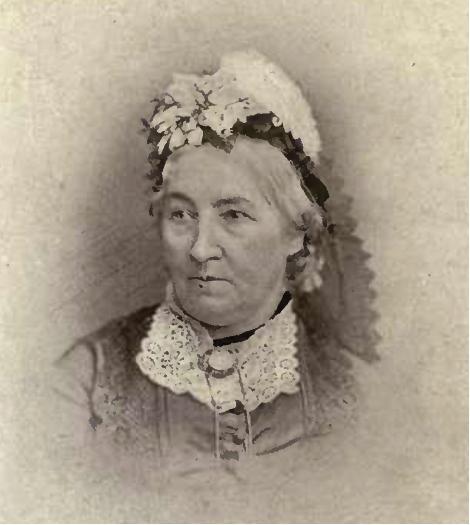Hugh Hoyles on:
[Wikipedia]
[Google]
[Amazon]
Sir Hugh Hoyles (October 17, 1814 – February 1, 1888) was a politician and lawyer who served as the third premier of the colony of Newfoundland. Hoyles was the first premier of Newfoundland to have been born in the colony, and served from 1861 to 1865. Born in St. John's, he was the son of Newman Hoyles, the first leader of the
 Hoyles married Jean Liddell (1813-1886), daughter of John Liddell, in 1842. The couple had four children. Hoyles' wife, Jean, died on January 17, 1886, and was buried at
Hoyles married Jean Liddell (1813-1886), daughter of John Liddell, in 1842. The couple had four children. Hoyles' wife, Jean, died on January 17, 1886, and was buried at
Tory Party
The Tories were a loosely organised political faction and later a political party, in the Parliaments of England, Scotland, Ireland, Great Britain and the United Kingdom. They first emerged during the 1679 Exclusion Crisis, when they opposed ...
.
Educated in Nova Scotia
Nova Scotia ( ; ; ) is one of the thirteen provinces and territories of Canada. It is one of the three Maritime provinces and one of the four Atlantic provinces. Nova Scotia is Latin for "New Scotland".
Most of the population are native Eng ...
Hoyles trained as a lawyer and returned to St John's in 1842, quickly establishing a large and lucrative legal practice. He was eminent in the Natives' Society and the Newfoundland Church Society.
Hoyles was elected to the Assembly in 1848. He rapidly became the Conservative leader, opposing responsible government, on the grounds that the colony was not ready for it, and throwing his weight behind Bishop Feild's campaign to divide the Protestant educational grant and put Anglicans on the same footing as Catholics. This proposal alienated Methodists who thereupon voted for the Catholic Liberal Party so that, in the 1855 election, the first after responsible government, Hoyles found himself leader of the Opposition. Even though he dropped his support for Feild, and adopted a more pan-Protestant stance, he still unsuccessful in the election of 1859.
In 1861, his chance came when he was hired as a lawyer by senior judges to fight Premier John Kent's plans to reduce their salaries. When Kent accused the judges, the governor
A governor is an administrative leader and head of a polity or political region, ranking under the head of state and in some cases, such as governors-general, as the head of state's official representative. Depending on the type of political ...
and the Conservatives of conspiracy the Governor fired Kent and appointed Hoyles as the new Premier. Hoyles' government was defeated in the legislature and had to fight an election in a highly charged sectarian atmosphere which resulted in riots and loss of life, requiring troops to be sent in, when the Conservatives narrowly won the election.
During his term as premier, he tried to cool sectarian tensions between Catholics and Protestants by inviting Catholics to join his administration and distributing all patronage fairly between religious groups. He sent delegates to the Canadian Confederation Conference at Quebec in 1864. Newfoundland had not been invited to Charlottetown. Those delegates, Ambrose Shea for the opposition, and Frederick Carter
Sir Frederick Bowker Terrington Carter, (February 12, 1819 – March 1, 1900) was a lawyer and Premier of Newfoundland from 1865 to 1870 and from 1874 to 1878.
Career
Carter was the son of Peter Weston Carter''Volume one, p. 363, Encyclopedia ...
, for the government, did not have the power to negotiate.
Hoyles decided to leave office in 1865, before the crucial 1869 election which decided the fate of Confederation with Canada. He was succeeded by Sir Frederick Carter
Sir Frederick Bowker Terrington Carter, (February 12, 1819 – March 1, 1900) was a lawyer and Premier of Newfoundland from 1865 to 1870 and from 1874 to 1878.
Career
Carter was the son of Peter Weston Carter''Volume one, p. 363, Encyclopedia ...
. Hoyles was appointed Chief Justice of Newfoundland, a post which he filled with great distinction. He retired to Halifax in 1880 to live with his married daughter. He died on February 1, 1888. D.W. Prowse, the nineteenth century Newfoundland historian, comments that "we are all proud of Sir Hugh as the most distinguished Newfoundlander of our day".
Family
 Hoyles married Jean Liddell (1813-1886), daughter of John Liddell, in 1842. The couple had four children. Hoyles' wife, Jean, died on January 17, 1886, and was buried at
Hoyles married Jean Liddell (1813-1886), daughter of John Liddell, in 1842. The couple had four children. Hoyles' wife, Jean, died on January 17, 1886, and was buried at Halifax, Nova Scotia
Halifax is the capital and largest municipality of the Provinces and territories of Canada, Canadian province of Nova Scotia, and the largest municipality in Atlantic Canada. As of the 2021 Census, the municipal population was 439,819, with 348 ...
. Their son, N. W. Hoyles, Esquire, K.C., lived in Toronto, Ontario
Toronto ( ; or ) is the capital city of the Canadian province of Ontario. With a recorded population of 2,794,356 in 2021, it is the most populous city in Canada and the fourth most populous city in North America. The city is the ancho ...
.
References
* {{DEFAULTSORT:Hoyles, Hugh 1814 births 1888 deaths Canadian Anglicans Premiers of Newfoundland Colony Politicians from St. John's, Newfoundland and Labrador Newfoundland Colony judges